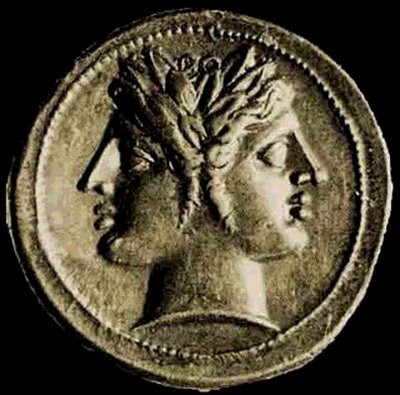by
Damien F. Mackey
As if one king Antiochus IV ‘Epiphanes’ were
not enough, there was another such named king, at least according to the
history books, ruling in the C1st AD.
King Antiochus IV ‘Epiphanes’ of
Commagene (Armenia) and Cilicia Tracheia was, just like his Seleucid namesake,
Antiochus IV ‘Epiphanes’, born to a king Antiochus III - Commagene being the
region ruled by the Seleucid tyrant: “Another Epiphania was founded [by the
latter] in Armenia”. https://www.britannica.com/biography/Antiochus-IV-Epiphanes
For the massive impact upon Cilicia
Tracheia by the Seleucid ‘Epiphanes’, see C. Tempesta’s
"Antiochus IV Epiphanes and
Cilicia", in Adalya VIII, Istanbul, 2005, pp. 59-81.
Both
the Commagene version, who “reigned … as a client king to
the Roman Empire” (https://en.wikipedia.org/wiki/Antiochus_IV_of_Commagene),
and the Seleucid one, were servants of Rome (https://www.britannica.com/biography/Antiochus-IV-Epiphanes):
After his
father’s defeat by the Romans in 190–189, [Antiochus IV] served as hostage
for his father in Rome from 189 to 175, where he learned to admire
Roman institutions and policies. His brother, King Seleucus IV, exchanged him for Demetrius, the son of Seleucus; and after Seleucus
was murdered by Heliodorus, a usurper, Antiochus in turn ousted him. During
this period of uncertainty in Syria, the guardians of Ptolemy VI, the Egyptian ruler, laid claim to Coele Syria, Palestine, and Phoenicia, which
Antiochus III had conquered. Both the Syrian and Egyptian parties appealed to
Rome for help, but the Senate refused to take sides. In 173 Antiochus paid the
remainder of the war indemnity that had been imposed by the Romans on
Antiochus III at the Treaty of Apamea (188).
[End
of quote]
The
Commagene version also grew up in Rome: “Antiochus seems to have gained Roman
citizenship. He lived and was raised in Rome, along with his
sister. While he and his sister were growing up in Rome …” (Wikipedia).
Both
were descended form a Queen Laodice.
In
the case of Commagene: “Through
his ancestor from Commagene, Queen Laodice VII
Thea, who was the mother of King Antiochus I Theos of Commagene,
he was a direct descendant of the Greek Seleucid
kings” (Wikipedia).
So, there is a blood connection here between the supposedly
two dynasties.
In the case of the Seleucid: “Mother: Laodice III (daughter of Mithradates II of
Pontus)”: http://www.livius.org/articles/person/antiochus-iv-epiphanes/?
That name, “Mithradates”,
was in fact the Seleucid’s original name: “Antiochus
IV Epiphanes (Επιφανής, Greek: Manifest),
originally named Mithradates, but renamed Antiochus either upon his ascension
or after the death of his elder brother Antiochus …”. (http://www.newworldencyclopedia.org/entry/Antiochus_IV_Epiphanes).
Finally,
we learn of another connection of an Antiochus IV ‘Epiphanes’ with the emperor
Hadrian, over and above what I wrote about this in:
Antiochus 'Epiphanes' and Emperor Hadrian. Part One:
"… a mirror image"
The Commagene version’s grand-daughter, Julia
Balbilla, became a travelling companion of the emperor Hadrian in Egypt (http://bmcr.brynmawr.edu/2003/2003-07-30.html):
Perhaps the best candidate for
such a figure of females [re “prominence and visibility to females in the
domain of cult”] is Julia Balbilla, a granddaughter of Antiochus IV who
accompanied Hadrian and Sabina on a trip to Egypt in A.D. 130 (the visit to
Sparta was not to occur until late in life for the purpose of attending to the
construction of a heroon in honor of her cousin Herculanus). Writer of
poetry in the Aeolic dialect of Sappho, with no recorded husband or child, a
possible exemplar of lesbian relationships, if she was the lover of Sabina
(perhaps modeled on the emperor's own liaison with Antinous) (pp. 128-129) -- a
more unconventional female figure (by the standards of Greek antiquity) would
be difficult to imagine, but strictly speaking we are no longer here within the
limits of religion, much less religion at Sparta. ….
It
is unfortunately upon such a dubious historical figure as Julia Balbilla that
we must be reliant for much of the account of the emperor Hadrian’s visit to
Egypt.

No comments:
Post a Comment